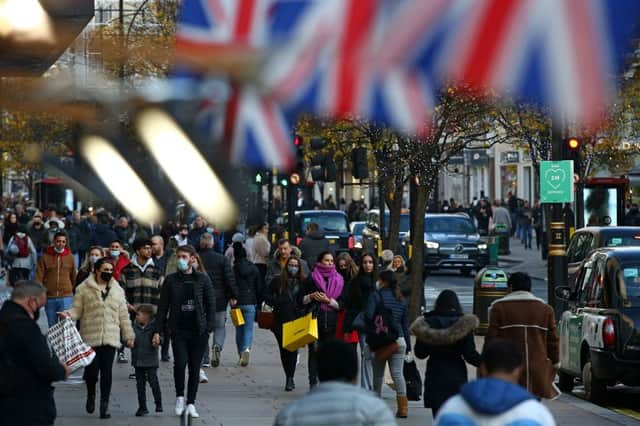Here's when non-essential shops will reopen during step 2 of England's lockdown roadmap


Prime Minister Boris Johnson announced some ‘save-the-dates’ for the next few months in his roadmap out of lockdown statement on 22 February.
While schools and household mixing are top of the agenda, Johnson has also laid out plans for when we can expect non-essential retail to open.
Here’s what you need to know.
Which shops are closed?
Advertisement
Hide AdAdvertisement
Hide AdSince lockdown in England began on 4 January, only essential stores such as those selling food, pet supplies and medicine, as well as post offices, fuel stations and DIY stores have remained open.
All other non-essential shops have been closed - including retail, toy shops, homeware and electronic goods stores.
What stores will reopen after lockdown?
As lockdown eases, non-essential shops will be allowed to reopen. This includes:
- Clothes stores
- Car showrooms
- Tobacco and vape shops
- Electronic goods shops
- Bookmakers
- Toy shops
- Gift shops
- Auction houses
Market stalls selling any non-essential items will also be allowed to reopen.
When will non-essential shops reopen?
Advertisement
Hide AdAdvertisement
Hide AdNon-essential retail will reopen in stage 2 of the roadmap, five weeks after the beginning of stage one on 8 March.
Therefore, the second steps will be introduced from 12 April and will see non-essential retail open, as well as hairdressers and public buildings like libraries and museums.
In this stage, beer gardens, zoos and theme parks can reopen, as well as indoor leisure like swimming pools and gyms and self-contained holiday accommodation, such as self-catering and camp sites.
What rules are likely to be in place in stores?
While guidelines have not been determined yet, there are a number of rules shoppers could need to follow.
Advertisement
Hide AdAdvertisement
Hide AdThe Scientific Advisory Group for Emergencies (SAGE) has commented previously that in general non-essential retail is ‘low risk’ when social distancing measures are in place and face masks are worn.
Therefore, rules such as mask wearing in shops and shopping centres, fitting rooms remaining closed and maximum capacity numbers in shops, so queueing outside could still be necessary.